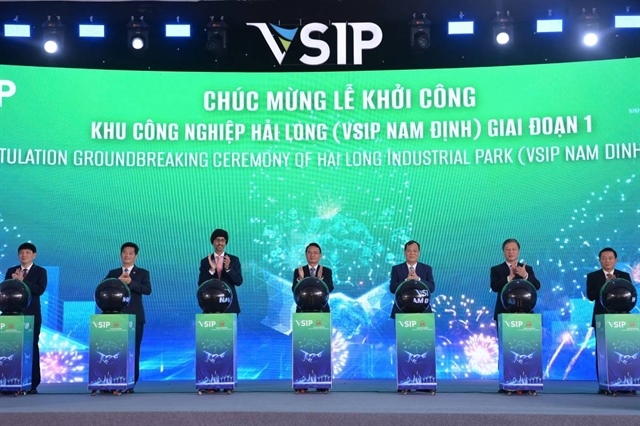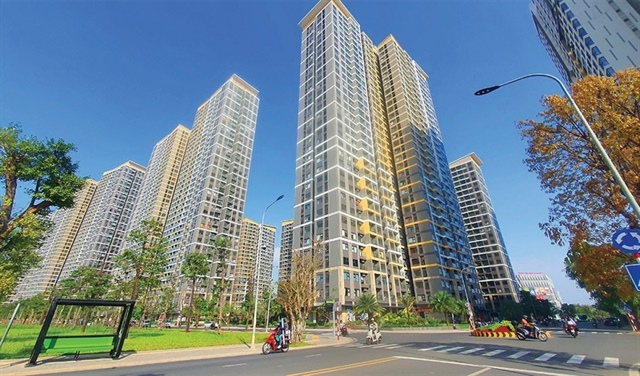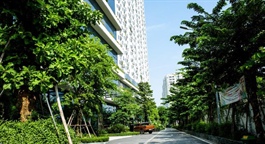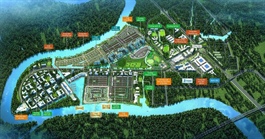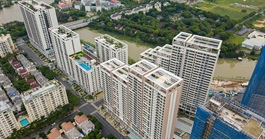Property market to have strong recovery this year: Vietnam Report
Property market to have strong recovery this year: Vietnam Report
Viet Nam’s real estate market is forecast to have a better year compared to 2021 and gradually return to the normal performance as before the COVID-19 pandemic, according to the Vietnam Report Joint Stock Company.

The growth of this market in the near future is mainly thanks to companies’ restructuring of their operations and their recovery from the negative impacts of the pandemic, along with the support of stimulus packages.
Under the Government's economic incentives, interest rates remain low and the disbursement of public investment is accelerated. Foreign direct investment continues to flow into Viet Nam and remittances stay stable (except for those from Russia and Ukraine).
In the short term, the Government's economic stimulus package, no matter which area would benefit, will bring positive effects to the real estate market, thanks to the improvement of people's purchasing power in general as well as their future income expectations.
The Vietnam Report said that the VND350 trillion (US$15.3 billion) economic support package, which is about to be implemented with nearly VND114 trillion for infrastructure, will not only have a direct impact on the real estate market in the short term but also work as a driving force for the development of the market in the coming years.
The growth engine for the real estate market is not just in the post-pandemic period, but also due to the trend of urbanisation and the rise of the middle class. The increase in the number of privately-owned cars also greatly impacts the demand for some segments of high-end apartments, resorts and land plots.
Vietnam Report quoted Knight Frank's latest Prosperity report as saying that in the next five years, the growth of the super-rich in Viet Nam is forecast to reach 26 per cent, on par with China’s Hong Kong and Taiwan. This is the basis for many investors to continue pursuing the high-end and luxury segment.
According to Vietnam Report, 2022 is the beginning of a new growth cycle for the domestic real estate market. Therefore, real estate companies need to grasp new trends in the market and make appropriate plans to minimise risks, improve business efficiency and meet customer needs.
A recent survey for the real estate businesses conducted by Vietnam Report has recorded some key trends of the real estate market in the future.
Vu Dang Vinh, Vietnam Report general director, said that the COVID-19 pandemic has accelerated the digitisation in many fields, including the real estate sector. Digitisation is implemented in activities relating to real estate transactions, asset management and provision virtual tours for real estate products.
Only a few real estate enterprises have applied digital solutions such as artificial intelligence (AI) tools, cloud computing and automation using robots, according to the survey.
However, in 2022 and the coming years, virtual tours and digital transactions will become more popular for the real estate market. Along with that, innovations related to artificial intelligence and virtual reality will bring customers better experience.
Smart facilities
According to Vietnam Report, in 2021, 22.96 per cent of customers used real estate brokerage applications and they planned to continue to use this method. By February 2022, the rate increased to 27.4 per cent.
In addition, more than 85 per cent of customers in the Vietnam Report survey said that they are willing to live in smart homes. Therefore, the enterprises developing future projects need to consider requirements on smart facilities such as car charging stations, smart security systems, smart cleaning, smart lighting and smart energy management.
Demand for smart facilities is growing not only in the housing sector but also in other segments of the real estate market such as offices for lease. Accordingly, customers tend to prefer newer buildings with better ventilation systems and modern facilities such as touch systems. All changes aim at ensuring safety in the pandemic period, improving office management and enhancing efficiency of office operation.
Therefore, besides adapting spaces to suit the trend of flexible working at home and office as well as health and safety requirements, real estate companies need to invest in tools and technology to promote the mental health of employees after the pandemic.
Modern and multi-purpose industrial park models with synchronous utility systems will also become a trend in the future, according to the Vietnam Report.
In sustainable development strategies, the enterprises prioritise choosing green and clean offices and eco-industrial parks and reduce natural resource exploitation to limit impacts on the environment but do not affect business performance.
Property developers are implementing many initiatives and applying green building methods such as solid waste management, water recycling, rainwater harvesting and use of renewable energy sources. They also have efficient design for optimising natural ventilation and ensuring green infrastructure in the buildings.
Those solutions have existed in the property market for many years but this year is expected to see more eco-friendly property projects.
However, the real estate market this year also faces many challenges and obstacles due to outstanding problems in pandemic control work of countries around the world and Viet Nam, as well as in economic recovery, such as increasing cases of COVID-19, the inflationary pressure and geopolitical instability.


